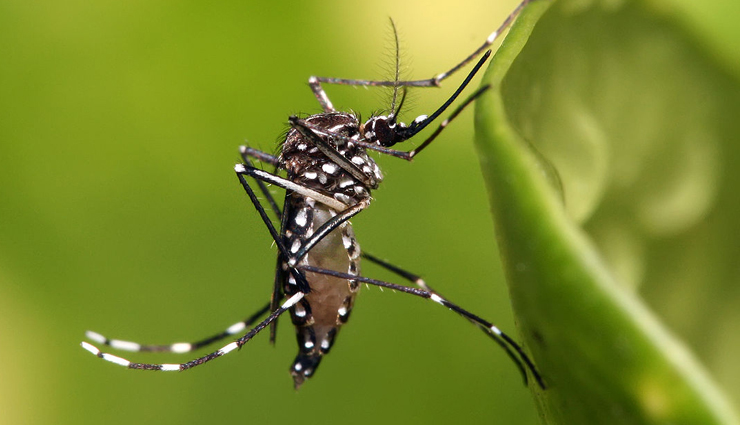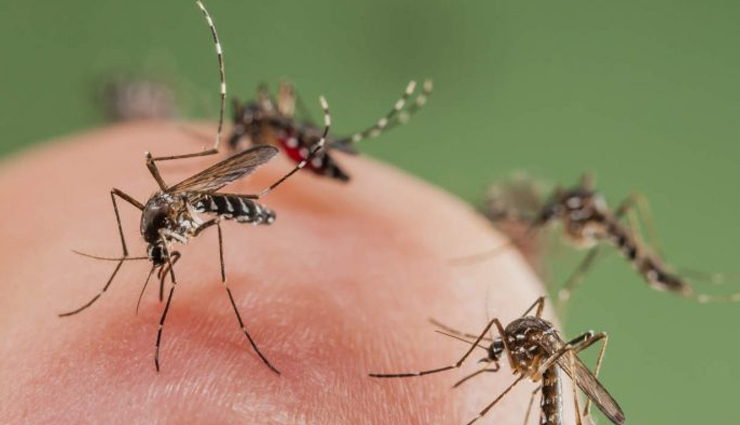10 Prevalent Myths About Mosquitoes You Should Not Believe
By: Priyanka Maheshwari Thu, 29 Aug 2024 11:06:27

Mosquitoes are small, flying insects belonging to the family Culicidae. They are known for their slender bodies, long legs, and distinctive long, sharp proboscis, which they use to feed on the blood of humans and other animals. There are over 3,500 species of mosquitoes worldwide, but only a few are responsible for spreading diseases.
Mosquitoes play a significant role in ecosystems as a food source for many animals, including birds, bats, and fish. However, they are most notorious as vectors of diseases like malaria, dengue fever, Zika virus, and West Nile virus. Female mosquitoes require a blood meal to develop their eggs, which is why they bite humans and animals. The males, on the other hand, typically feed on nectar and do not bite.
Mosquitoes undergo four life stages: egg, larva, pupa, and adult. They thrive in warm, humid environments and breed in stagnant water, making them common in tropical and subtropical regions. Their presence is a major public health concern, particularly in areas where mosquito-borne diseases are prevalent. Controlling mosquito populations and preventing bites are crucial for reducing the spread of these diseases.

# Myth 1: Mosquitoes Are Attracted to Sweat
A common misconception is that mosquitoes are mainly drawn to sweat. While sweat does contain lactic acid and other chemicals that might catch a mosquito’s attention, these are not the primary attractants. The real triggers are carbon dioxide and body heat. Mosquitoes have specialized sensors that detect the carbon dioxide humans and animals exhale. Once they zero in on a potential host, they are further lured by the warmth of the body. So, although sweating might make you slightly more appealing to mosquitoes, it's not the main reason they come your way.
# Myth 2: All Mosquitoes Bite Humans
Not every mosquito is interested in biting humans. Out of more than 3,500 mosquito species, only a small percentage feed on human blood. Many prefer the blood of other animals, such as birds or reptiles. It's only the female mosquitoes that bite humans, as they need the proteins in blood to develop their eggs. Male mosquitoes, in contrast, feed solely on nectar and other plant-based substances.

# Myth 3: Mosquitoes Are More Active at Night
Many believe that mosquitoes are primarily nocturnal, most active at night. While certain species do prefer dusk and dawn, others, like the Aedes aegypti mosquito (a carrier of diseases like dengue and Zika virus), are mainly active during the day. Mosquito activity varies based on the species and environmental factors, so it's important to stay protected at all times of day.
# Myth 4: Mosquitoes Are Only a Problem in Tropical Areas
There's a widespread belief that mosquitoes are only an issue in tropical or subtropical regions. While these areas do have a higher density of mosquito species and associated diseases, mosquitoes can also be found in temperate and even some cold climates. For example, Aedes mosquitoes, which transmit diseases like West Nile virus and Zika virus, have been reported in parts of North America and Europe. Mosquitoes can adapt to a variety of climates, with their presence depending on seasonal and environmental conditions.
# Myth 5: Mosquitoes Can Bite Through Clothing
It's commonly thought that mosquitoes can bite through clothing, but this isn’t entirely true. While mosquitoes are skilled at finding exposed skin, they typically cannot penetrate most clothing. They are more likely to bite areas that are uncovered or covered by thin fabric. Wearing long sleeves, pants, and other protective clothing can reduce the risk of being bitten. However, mosquitoes can still reach skin through thin or loosely woven materials.

# Myth 6: Eating Certain Foods Can Repel Mosquitoes
Another myth suggests that eating specific foods, like garlic or bananas, can repel mosquitoes. While these foods might slightly alter your body scent, there is no strong scientific evidence to support the idea that they can effectively repel mosquitoes. The best way to prevent mosquito bites is to use repellents containing DEET, picaridin, or other proven ingredients, along with measures to control mosquito populations.
# Myth 7: Mosquitoes Only Bite in Areas with Standing Water
Many believe mosquitoes only breed in standing water. While stagnant water is a common breeding ground, it is not the only one. Mosquitoes can lay eggs in very small amounts of water, like in discarded tires, flower pots, or rain gutters. Regularly emptying and cleaning any containers that might hold water around your home is essential to reduce mosquito breeding sites.
# Myth 8: Mosquito Bites Are Just an Irritation
Mosquito bites are often seen as nothing more than a nuisance, but they can pose significant health risks. Mosquitoes are vectors for several dangerous diseases, including malaria, dengue fever, Zika virus, and West Nile virus. The itching and swelling from a mosquito bite are caused by the body's immune response to the mosquito's saliva, which contains anticoagulants to aid in blood-feeding. Beyond discomfort, excessive scratching of bites can lead to secondary infections.

# Myth 9: Mosquitoes Can Transmit All Types of Diseases
Not all mosquitoes can transmit diseases. Only certain species are vectors for specific diseases. For example, the Anopheles mosquito is known for spreading malaria, while Aedes mosquitoes are responsible for transmitting dengue fever and Zika virus. Disease transmission depends on various factors, including the mosquito's infection status and the presence of the pathogen in the environment.
# Myth 10: Mosquitoes Will Go Away With the First Frost
Some people think that mosquitoes disappear entirely with the first frost. While colder temperatures do reduce mosquito activity and can kill many adults, they don't eliminate mosquitoes completely. Some species have adapted to survive in various climates, entering a dormant state or finding sheltered areas to survive the winter. Additionally, mosquito eggs can endure cold temperatures and hatch when the weather warms up again.





